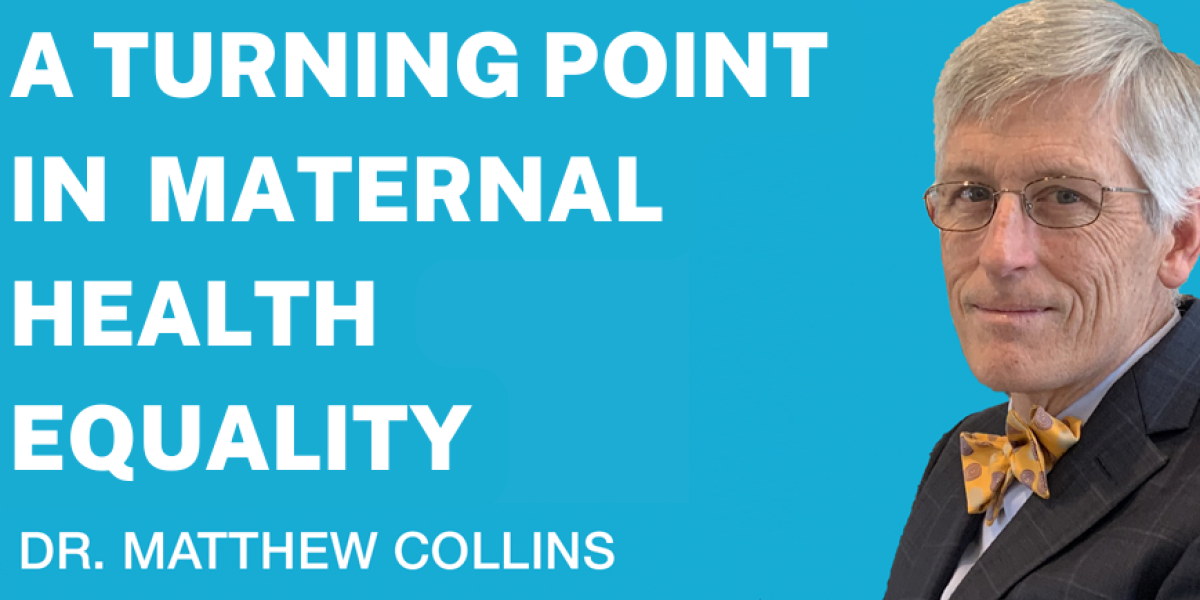
27 Jul, 2022
A Turning Point in the Fight for Maternal Health Equality
Matthew J. Collins, M.D., M.B.A., BCBSRI executive vice president and chief medical officer
At the start of this month, Rhode Island government passed legislation that ensures private health insurers and Medicaid are required to reimburse services provided to pregnant people by a doula.
This important piece of legislation was signed into law last summer, and Blue Cross & Blue Shield of Rhode Island (BCBSRI) began covering this important service in 20 de janeiro22, further championing the passage of this legislation as part of our ongoing efforts to address maternal health equity and racial inequities in our healthcare system.
The passage of this law recognizes that doulas can improve health outcomes, as well as the likelihood of women of color having a positive childbirth experience with a reduced risk of complications. Doulas are trained healthcare professionals who provide continuous physical, emotional, and informational support during pregnancy, childbirth, and throughout the post-partum year. This law will increase access to doulas to help address health inequities faced by communities of color. Studies show that doulas help reduce the rate of C-sections, which occur at higher rates among Black women, and increase successful breastfeeding, which improves the health of new moms and babies and is less common among Black or low-income women. Learn more about BCBSRI’s coverage for doula services here.
Supporting this critical legislation is just one of many steps BCBSRI continues to take to help address maternal health inequities locally and nationally. We understand the urgent need to create solutions to these issues, which are facing many in our community, so we’ve aligned with the Blue Cross Blue Shield Association (BCBSA) and their 2021 commitment to reduce racial inequities in maternal health by 50% in five years. That commitment includes specific steps in key areas such as working with invested community stakeholders, providing cultural humility and unconscious bias training to maternal care providers (read more on this below), and increasing access to doulas and other community health workers, which is well underway with the recent legislation. See the entire list of BCBSA maternal health equity actions here.
We’ve also recently launched a high-risk maternal case management program, with a goal to reduce the risk of pre-term births, low birth weights, and pregnancy-related complications by providing relevant information, tools, and resources to expectant mothers. Through this program, case managers help participants increase their general knowledge about the various stages of pregnancy. We’re building partnerships with ob/gyns and maternal care providers throughout Rhode Island to maximize the effectiveness of the program.
Additionally, we’re working with local partners to bolster the doula workforce in Rhode Island and support entities that are focused on advancing perinatal health and wellness education to those who need it most and are adversely impacted by poor health outcomes in their reproductive life. The goal is to find ways to work together to ensure that we’re adequately prepared to help families to be ready to properly care for their infants.
Through the BCBSA, we also now have access to implicit bias training – provided by the March of Dimes – designed to foster cultural sensitivity for maternal care providers. This unique in-person or virtual learning experience, called “Breaking Through Bias in Maternity Care," provides authentic, compelling content for healthcare professionals who provide care before, during, and after pregnancy. Like the BCBSA and individual Blue plans, the March of Dimes supports increased access to doula care as one way to improve birth outcomes, and recognizes the importance of increased training and support for doulas, particularly in racially, ethnically, socioeconomically, and culturally diverse communities.
We continue to explore other important steps we can take related to creating culturally appropriate interventions for pregnant people and families, improving childbirth safety for women of color, and conducting critical screening and providing support people experiencing post-partum depression.
Working with community and provider partners, we are determined to achieve our maternal health equity goals.

